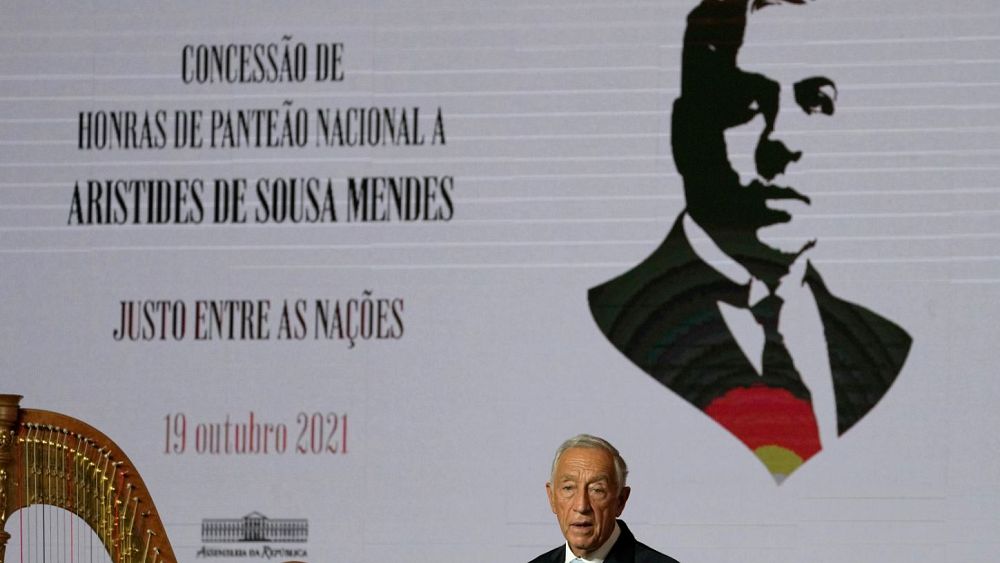
Portugal has paid official homage to a diplomat who helped save thousands of people from Nazi persecution during World War II.
Aristides de Sousa Mendes — known as the “Portuguese Schindler” — was honoured at the country’s National Pantheon on Tuesday.
Leading Portuguese politicians, public figures and the diplomat’s own descendants attended the formal televised ceremony in Lisbon.
Sousa Mendes’ tomb plaque was placed alongside other celebrated figures from Portuguese history at the landmark building, 67 years after his death.
“Portugal bows to his moral character,” said President Marcelo Rebelo de Sousa.
Sousa Mendes is one of Portugal’s most famous 20th-century diplomats and civil servants.
In 1940, he defied his superiors as a consul in Bordeaux, France, by handing out visas to many people who feared being hunted down by the Nazis.
The Portuguese visas allowed Jewish refugees fleeing the Holocaust to escape through neutral Portugal by air and sea to the United States and other countries.
The Lisbon government was supposed to give express consent for certain visa applicants, but Sousa Mendes acted against the neutral wishes of dictator António Salazar.
Within nine days, Sousa Mendes had issued visas to more than 30,000 applicants, including an estimated 10,000 Jews.
He was fired from the diplomatic service and was ostracised and shamed by the public before he died in poverty in 1954.
But decades later, he was earned international recognition for his key role in saving refugees from Nazi persecution.
The speaker of the Portuguese Parliament, Eduardo Ferro Rodrigues, said Sousa Mendes’ conduct lent prestige to Portugal.
“People who at the decisive moment put their and their family’s safety at risk for the greater good are rare. Sousa Mendes was one of those people,” Ferro Rodrigues said in a speech.
In 2017, President Rebelo de Sousa had also bestowed Portugal’s highest honour, the Grand Cross of the Order of Liberty, on Sousa Mendes.
Last year, the Portuguese parliament voted to officially honour the former diplomat at the National Pantheon by placing there a plaque.
His family had requested that his remains be buried in the family vault in Cabanas do Viriato, in the centre of Portugal.